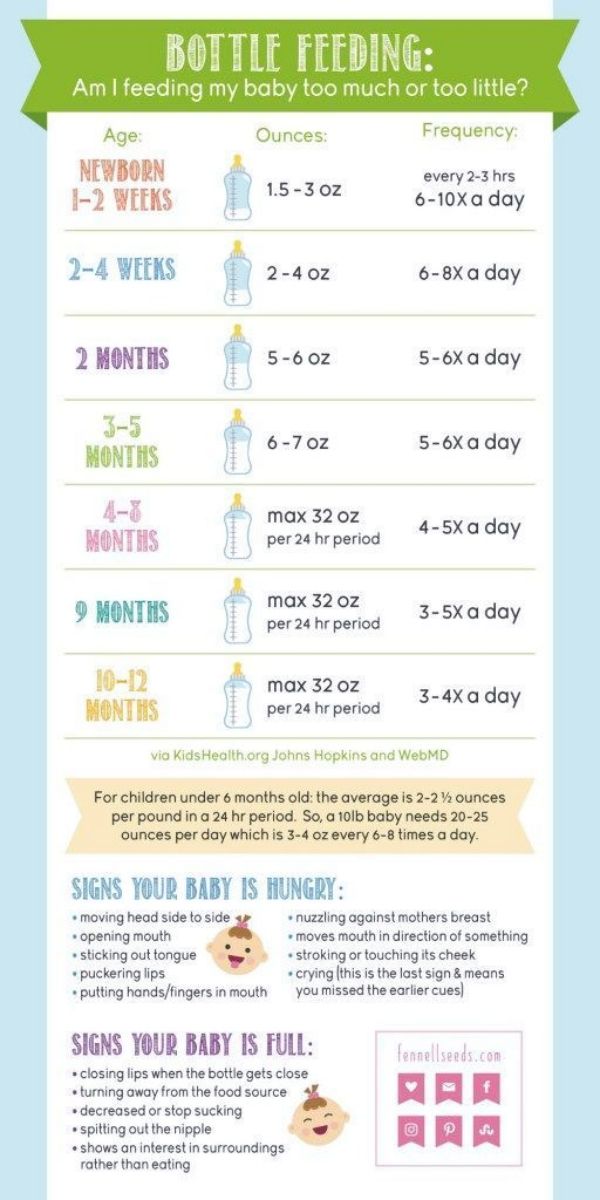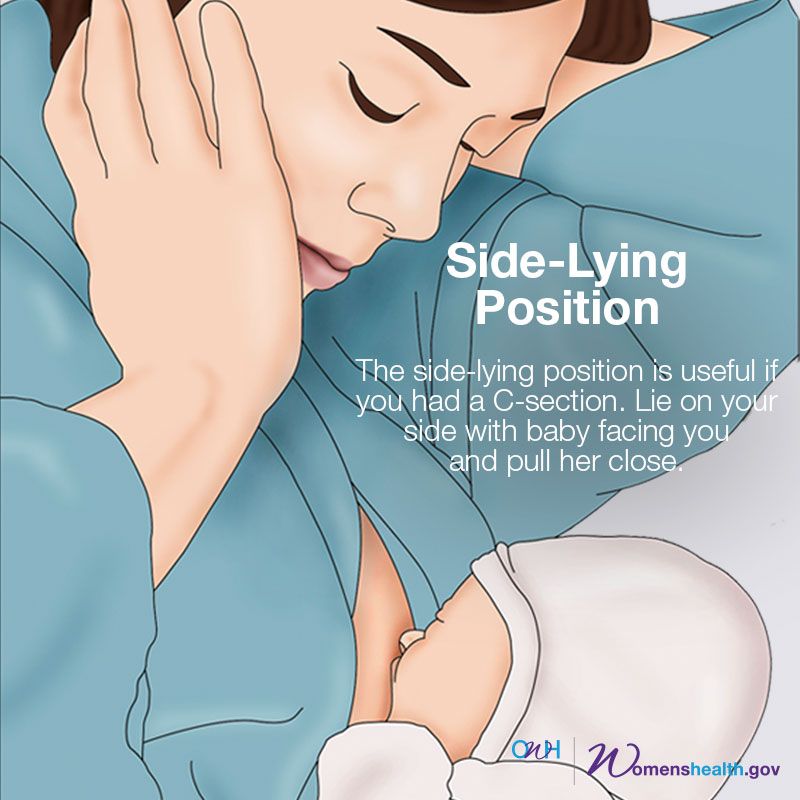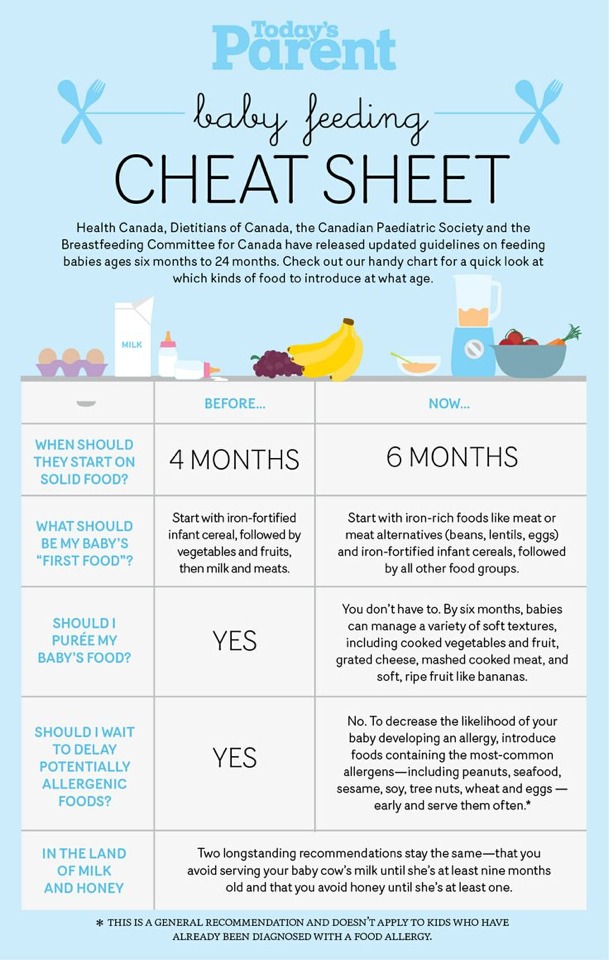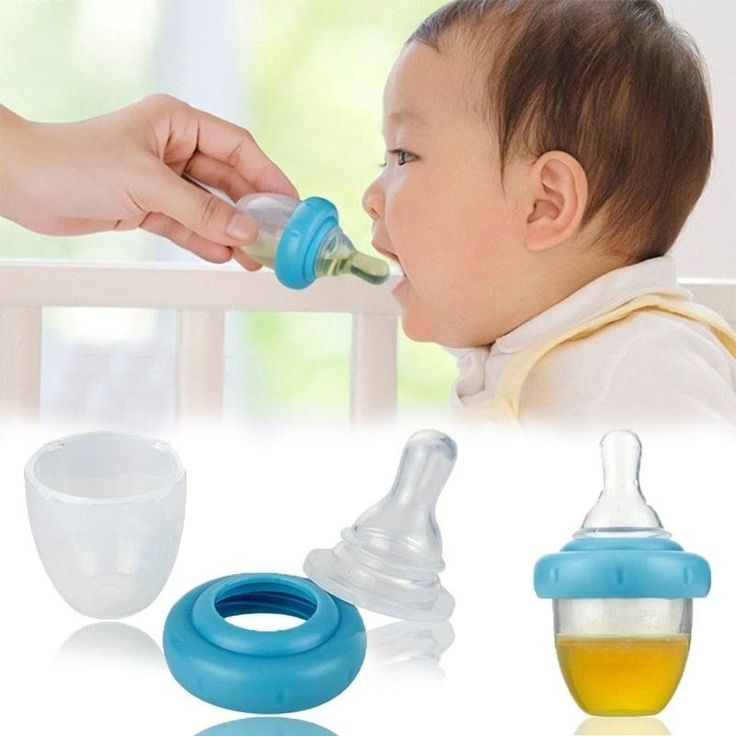Baby feeding little and often at night
How to cope with night feeds | Baby & toddler, Feeding articles & support
Waking up to feed your baby in the early weeks can be mentally and physically tiring. NCT breastfeeding counsellor and postnatal practitioner Fran Bailey shares her tips on making night feeds more manageable.
Sleep – or lack of it – is one of the biggest challenges when you have a newborn. After busy days looking after your baby, you’d be forgiven for looking forward to a good night’s shut-eye.
But the fact is, newborn baby’s tummies are small, and they need to wake up every few hours to feed. It would be a cause of concern if they didn’t! Unfortunately, this means that your own sleep will be incredibly disrupted for the first few months.
NCT breastfeeding counsellor and postnatal practitioner Fran Bailey says:
‘It’s really normal for babies to wake lots in the night to feed in the early weeks and months. This is part of newborn behaviour that ensures they get enough milk but also to keep them safe.
’
Be prepared
It can help to be as prepared as possible to minimise the amount of time you have to spend getting everything ready when you’re tired and your baby’s hungry. If you’re mixed or formula feeding, make sure you have bottles already sterilised, and formula or expressed milk to hand.
Place a changing mat, nappies, change of clothes if needed and wipes (or cotton wool balls and fresh water) close by so you can change your baby quickly. If possible, try to change baby’s nappy before a feed to avoid waking them up too much afterwards. However, only change them if they’ve done a poo or their nappy is very wet, as it might overstimulate them when you’re trying to keep them relaxed.
It’ll help to have your baby in the same room and close to you for the first six months so you can hear when they wake and you don’t have to go too far. This can all help the night feeds feel like less of a mission.
Put a glass of water and even a snack by your bed or feeding chair so you have some refreshment for yourself during feeds.
You’re not alone
Involving your partner or a family member or friend with night feeds can make a huge difference. Just knowing you’re not the only one who has to deal with night feeds can help you feel less lonely and like you’re both in this together.
Fran says: ‘In the early weeks, when partners are on parental leave, having some company (and support!) while feeding can be invaluable. Some couples take it in turns to offer a feed to their new baby. For families where women are breastfeeding, this doesn’t mean that partners can’t help.
‘There is lots that partners can do to help in the middle of the night. This might be bringing baby to mum, or changing nappies and settling baby back to sleep.’
"Having some company and support when feeding at night can be invaluable"
After a feed, partners can burp baby and look after them so you can get a few more precious minutes rest. Sharing lots of cuddles and helping to meet your baby’s needs at night can be an important bonding time for your partner and baby, too.
Even if you’ve had to be up for longer in the night, family and friends can help during the day, especially if you’ve got older children. NCT volunteer for Bolton and North West Manchester, and mum to Dorothea and Edward, Lorna says: ‘My hubby works from home, so he gets up with the toddler and baby at 6.30 and I go back to sleep until about 8 to catch up a little.”
If you’re breastfeeding but struggling with the frequent night awakenings, you could express some milk during the day for your partner to bottle feed your baby in the evening (if they’ll take it) so you can get some undisturbed sleep then.
Keep things low-key
Make getting back to sleep after feeds easier by trying not to wake your baby up too much at night. When you’re tired yourself, it might be tempting to put on the TV or go into a bright room, but this can make settling afterwards harder for you both.
Fran says: ‘There are things you can do to help your baby recognise the difference between night and day. Use dimmed lights and more gentle voices during a night feed…this will probably help you get back to sleep too. It’s worth avoiding caffeinated drinks or other stimulants overnight as they might make it harder for you to go back to sleep.”
Use dimmed lights and more gentle voices during a night feed…this will probably help you get back to sleep too. It’s worth avoiding caffeinated drinks or other stimulants overnight as they might make it harder for you to go back to sleep.”
Volunteer Lorna says: ‘I have the lights as low as possible and feed in a rocking chair. I can change my son without having to have too much light on, and not wake either of us up too much.’
To smartphone or not to smartphone?
One of the most popular ways of passing time in the small hours is to check your phone. WhatsApping your NCT friends can be a great way to feel connected and get emotional support during night feeds. Checking the latest celebrity gossip can also make the time pass quicker!
Just bear in mind that mobiles might not always be the best distraction. Fran says: ‘There is some research that indicates that the light from smartphones can interfere with sleep patterns, so some families may find that it is easier to get back to sleep if you haven’t been looking at your phone. ’
’
Find a balance between looking at your phone and focusing on baby. After all, you don’t want to be so absorbed that you don’t realise that your baby is already asleep and you could be too.
Some mums find that Kindles can be a great way to pass the time. One NCT volunteer says: ‘My husband got me a Kindle so I avoided being on my phone too much and it felt more relaxing if I could read – I’ve got through so many books over nine months.’
Sleep like a baby
Even with preparation and help, night feeds can be a shock to the system. It can help to adjust your own ideas of day and night to fit in with your baby. It’s not always easy, but in the early days, it can pay off to try to sleep as much as you can when your baby does during the day. This can really help recover from the birth or multiple wake-ups during the night. Alternatively, get your partner, another family member or a good friend to look after your baby for an hour or two while you lie down.
For the time being, you might have to accept that your sleep will be in chunks, rather than one big, uninterrupted rest. Like with anything, if you’re constantly counting the minutes, the whole experience could feel longer. If you can, accept that night feeds are a necessary part of your baby’s development and it won’t always be like this. Enjoy the extra cuddles and just having time alone with them.
Like with anything, if you’re constantly counting the minutes, the whole experience could feel longer. If you can, accept that night feeds are a necessary part of your baby’s development and it won’t always be like this. Enjoy the extra cuddles and just having time alone with them.
Babies are unique
It’s easier said than done, but try not to get too hung up about how much other people say their babies sleep. While you’re struggling with what feels like constant feeding at night, it’s not helpful to hear that someone else’s child is sleeping through. And there are so many definitions of what 'sleeping through' actually means! For some parents, it's between 11pm and 4am, while for others it means just two very short feeds in the night.
You can’t change your baby’s needs, so instead try to find the best way of getting through night feeds for you. And most importantly, try and remember that the night feeds won’t last forever. Like everything else, it’s a phase that will pass and take you on your next journey with your baby.
Further information
Our support line offers practical and emotional support with feeding your baby and general enquiries for parents, members and volunteers: 0300 330 0700.
Make friends with other parents-to-be and new parents in your local area for support and friendship by seeing what NCT activities are happening nearby. To find out when an NCT nearly new sale is happening near you, search here.
You might find attending one of NCT's Early Days groups helpful as they give you the opportunity to explore different approaches to important parenting issues with a qualified group leader and other new parents in your area.
Breastfeeding at night - La Leche League GB
Breastfeeding at night is one of the most discussed topics at La Leche League meetings, both in person and online. This is often because breastfeeding at night, especially in the early days, can be so important to establishing a successful breastfeeding relationship. It is also because of its inextricable link with the topic of sleep, which can be one of the biggest changes many mothers and families experience when they have a new child.
There is no doubt that caring for a new baby can be exhausting, especially if you feel you are not getting enough sleep. Understanding why breastfeeding at night is so important can help. There is a huge amount of both reliable and rather less reliable information on the internet and in countless parenting books about what infant sleep ‘ought’ to be like, and therefore what infant night-time feeding ‘ought’ to be like. This article is designed to give mothers and parents the information and reassurance they need to inform their own night-time breastfeeding approach, including some helpful tips on how to get more rest when you can.
Breastfeeding at night in the early weeks and months is normal and important
Babies wake to feed at night in the early weeks and months (and often beyond) for a number of important reasons. Breastfeeding at night is a vital part of establishing and maintaining a good milk supply and ensuring that newborn babies get all the milk they need to grow and thrive. Breastmilk works on a supply and demand basis: the more milk that is removed, the more milk your breasts make. For the majority of mothers, this means milk needs to be removed roughly every 2-3 hours in the early weeks. Although some babies may sleep for slightly longer periods overnight, perhaps 3-4 hour stretches, newborn babies will typically wake several times a night to feed. This also helps to ensure that you don’t get engorged breasts, which may lead to blocked ducts or mastitis.
Breastmilk works on a supply and demand basis: the more milk that is removed, the more milk your breasts make. For the majority of mothers, this means milk needs to be removed roughly every 2-3 hours in the early weeks. Although some babies may sleep for slightly longer periods overnight, perhaps 3-4 hour stretches, newborn babies will typically wake several times a night to feed. This also helps to ensure that you don’t get engorged breasts, which may lead to blocked ducts or mastitis.
Newborn babies often wake to feed because their bodies have signalled that they are hungry. However, newborns (and babies and children of all ages) also wake at night for many other reasons, including being scared or uncomfortable, being hot or cold, feeling the need for comfort and connection, and so on. As adults, we have developed ways of meeting these needs ourselves – adjusting a pillow, having a sip of water, cuddling our partner. As babies have no way of independently meeting these needs, they rely on their mother or parent to meet them. Breastfeeding at night offers mothers a way of easily and conveniently meeting the vast majority of these needs in one go.
Breastfeeding at night offers mothers a way of easily and conveniently meeting the vast majority of these needs in one go.
Lots of research shows that night waking is the biological norm for babies.i You can read more about it here as well as in Sweet Sleep, La Leche League International’s exhaustive publication on nights and naps for breastfeeding families. Research also shows that, overall, breastfeeding mothers get more sleep than mixed- and formula-feeding mothers. This is for a number of reasons, including the impact of natural hormones and chemicals released for baby and mother when breastfeeding at night. There is also a perception that babies who have formula milk sleep longer than breastfed babies. Evidence shows this is not the case.ii “Despite the common perception that supplementing an infant’s diet with formula milk or solid food will promote sleep, a recent study found that there was no difference in the frequency of night waking between breastfeeding and formula feeding infants aged 6-12 months old. Infants who received more milk or solid feeds during the day were less likely to feed at night but not less likely to wake.”iii
Infants who received more milk or solid feeds during the day were less likely to feed at night but not less likely to wake.”iii
Breastmilk at night
Research shows that breastmilk changes all the time, in response to all sorts of things, like the needs and health of your baby, temperature, and the time of day. For most mothers, breastmilk will gradually increase in fat content throughout the day. During the evening, young babies often cluster feed, taking in frequent feeds of this fattier milk, which tends to satisfy them enough to have their longest stretch of sleep. This cluster feeding in the early months may go on late into the evening when you were hoping you would be asleep, which can naturally feel exhausting.
Overnight, your prolactin levels – the hormone designed to support milk production – are at their highest. So, when your baby feeds frequently at night, the message to your body to boost milk supply is even stronger. Breastmilk at night is also high in the amino acid tryptophan, which in turn helps your baby to make melatonin, which is used by the body to develop its circadian rhythm (our internal system for recognising the difference between day and night) and to sleep better. Hormones produced while breastfeeding also help you to relax and fall more quickly back to sleep, which may be why you find yourself nodding off so easily while breastfeeding.
Hormones produced while breastfeeding also help you to relax and fall more quickly back to sleep, which may be why you find yourself nodding off so easily while breastfeeding.
Given the fact that the hormones in night-time breastmilk help you and your baby to get back to sleep quickly, feeding babies to sleep is completely natural. A mother and baby’s bodies are designed to work in tandem this way. Breastfeeding your baby to sleep helps baby feel calm, safe and secure. Over time, babies stop falling asleep at the breast so easily, and eventually all babies or children stop needing the breast to fall asleep. Sleep is not a taught development, and all children get there in their own time. So, while breastfeeding to sleep continues to work, many mothers find it a wonderful, loving and responsive way to help their children doze off.
Breast-sleeping / Co-sleeping
Safely sharing a bed with your baby, or having your baby sleep very close to you in a sidecar cot or similar, is one way of getting more sleep and rest. The majority of other mammals sleep with their young, and our own infants are hard-wired to expect this too. For many breastfeeding mothers, learning to feed lying down and being able to fall back asleep safely with baby is when things start to feel a lot more manageable at night. Some mothers may start out nursing their babies at night sat up in bed, but many soon find that mastering breastfeeding lying on their side can really help everyone to get more sleep, especially as baby gets a bit older and can latch on by themselves. Mums can feed from both breasts when lying on one side by simply tilting their body forwards more. The same principles for getting a comfortable, deep latch apply when side-lying as when feeding upright. It may take a little practice, but overall it’s easier and less disruptive for both mother and baby at night. Research shows that breastfeeding tends to be more successful overall for mothers that co-sleep than those that keep their baby separated from them at night.
The majority of other mammals sleep with their young, and our own infants are hard-wired to expect this too. For many breastfeeding mothers, learning to feed lying down and being able to fall back asleep safely with baby is when things start to feel a lot more manageable at night. Some mothers may start out nursing their babies at night sat up in bed, but many soon find that mastering breastfeeding lying on their side can really help everyone to get more sleep, especially as baby gets a bit older and can latch on by themselves. Mums can feed from both breasts when lying on one side by simply tilting their body forwards more. The same principles for getting a comfortable, deep latch apply when side-lying as when feeding upright. It may take a little practice, but overall it’s easier and less disruptive for both mother and baby at night. Research shows that breastfeeding tends to be more successful overall for mothers that co-sleep than those that keep their baby separated from them at night. You can read more about how to co-sleep or breast-sleep safely with your baby here
You can read more about how to co-sleep or breast-sleep safely with your baby here
Breastfeeding at night after the early months
Many mothers go through patches where their baby may wish to breastfeed more or less at night, especially within the first year. This will be related to a whole host of reasons, including growth spurts, teething, illness, and learning new skills such as sitting, crawling and walking. Like so much else with babies and children, the frequency of breastfeeds at night is not a linear progression. Phases of increased night feedings are usually relatively short-lived and you may find that co-sleeping is a really valuable tool for managing those phases. Increased periods of waking and breastfeeding around four-six months are very common and are not a sign that your baby is hungry and needs formula and/or solids. You can read more about this in our article ‘What happens at four months’
As your baby gets older and bigger, you may find that night feeding becomes much easier. While in the early days you may feel the need to switch on a light or sit up in bed in order to latch your baby comfortably onto your breast, as your baby gets stronger and learns to self-latch, feeding at night can be a simple matter of rolling over and putting the breast near your baby, who will manage the rest. Night feeds often become quicker too. Some mothers use breast compressions as a way of speeding up feeds. Being able to help their older baby back to sleep quickly with a breastfeed helps many mothers get the most sleep.
While in the early days you may feel the need to switch on a light or sit up in bed in order to latch your baby comfortably onto your breast, as your baby gets stronger and learns to self-latch, feeding at night can be a simple matter of rolling over and putting the breast near your baby, who will manage the rest. Night feeds often become quicker too. Some mothers use breast compressions as a way of speeding up feeds. Being able to help their older baby back to sleep quickly with a breastfeed helps many mothers get the most sleep.
Coping with the challenges
Knowing that waking at night to breastfeed is positive for our supply and our baby, and that it is the biological norm, can often be reassuring for mothers and parents. Nevertheless, sleep deprivation can be really challenging for many families. It can feel especially hard if your baby is waking more than your friends’ babies, or if they are an older baby still waking up more than you had expected.
New parents often get asked about their babies’ sleep and their approach to feeding at night. These conversations can sometimes lead to (unwanted) comments about what is normal, what you ‘should’ be doing, and how to ‘fix’ things. And if you are feeling really tired or at a low point, you may be thinking that you do need to find a ‘solution’ and try some of those suggestions. The many unhelpful sources out there setting unrealistic expectations may be undermining your self-confidence as a mother. Perhaps you’re wondering what a loving and respectful approach that suits both you and your baby would be?
These conversations can sometimes lead to (unwanted) comments about what is normal, what you ‘should’ be doing, and how to ‘fix’ things. And if you are feeling really tired or at a low point, you may be thinking that you do need to find a ‘solution’ and try some of those suggestions. The many unhelpful sources out there setting unrealistic expectations may be undermining your self-confidence as a mother. Perhaps you’re wondering what a loving and respectful approach that suits both you and your baby would be?
First, it’s important to say that you are not alone. At any point in time there are hundreds of thousands, if not millions, of mothers up and breastfeeding their babies – of varying ages – at night. A turning point for some of them is when they are able to relax their expectations of themselves and their babies a little. Some mothers also find that being constantly reminded of when they have been woken up is actually part of the problem, and they decide to ignore the clock and not to use their phones at night.
Being responsible for all the night-feeds can feel exhausting, or even unfair. Sometimes well-intentioned comments may suggest that a partner or other care-giver could feed the baby at night with a bottle. It can be useful to remember that the hormones in night-time milk make it easier for both you and your baby to get back to sleep quickly. And since the hormones in night-time milk are made at night-time, there is some evidence that giving your baby breastmilk expressed at other times does not always have quite the same effect. It is also sometimes easy to overlook the practicalities of another care-giver taking care of night-feeds. Mothers will often wake up when their baby does anyway, and may struggle to get back to sleep if they can hear their baby being upset while waiting for a bottle to be warmed up. Most mothers will also need to pump or hand express milk during the night to protect their supply and avoid engorgement, so they are often awake anyway during the time their baby is being fed by their partner.
Even though breastfeeding at night may be the responsibility of the mother alone, there are lots of ways to get supported so that things feel easier. For example, sometimes dads and partners get up with the baby first thing in the morning to give mums some extra time in bed, which can make a big difference to how tired they feel. Good communication is really helpful – ask for help with other things where you can and be clear about the kind of support you need. It’s OK not to enjoy breastfeeding every second, and it’s OK to complain about being tired: that doesn’t mean you don’t want to do it, so you can explain that asking ‘Why don’t you just stop?’ is not helpful and that you’d rather be asked ‘How can I help you find time to rest today?’
If you are really struggling with tiredness, you may want to think of ways to adapt your own routines for a short while to help you get more rest – perhaps sleeping more during the day, or going to bed earlier when your baby has her first ‘longer’ stretch of sleep. It can also be a great time to join an LLL group meeting with other breastfeeding mothers, as hearing that they are experiencing the same challenges can be really reassuring. Mothers often get bombarded with unrealistic expectations of infant sleep, and it’s precisely this misalignment of expectation and reality that can cause stress.
It can also be a great time to join an LLL group meeting with other breastfeeding mothers, as hearing that they are experiencing the same challenges can be really reassuring. Mothers often get bombarded with unrealistic expectations of infant sleep, and it’s precisely this misalignment of expectation and reality that can cause stress.
Another challenge that mothers may experience (usually once their baby is a bit older) is a feeling of nursing aversion or irritability, particularly during night-time feeds. These feelings can be very normal and are often linked to tiredness or feeling ‘touched out’. You may experience them more when your baby is waking or feeding a lot more frequently, for example when teething or feeling ill. You may also experience these feelings when there is a change in your own hormones, for example, during ovulation or your period. There is some anecdotal evidence that taking magnesium supplements can be helpful. Many mothers describe these feelings as irrational and usually short-lived; they can be a sign that you need to give yourself a little ‘self-care’ – perhaps asking for some more help during the day so that you can rest or focus on yourself.
Nursing aversion can sometimes lead to feelings of guilt about not enjoying breastfeeding, and make you wonder whether it is a sign you need to stop. There are some helpful information groups on social media where mothers share their nursing aversion experiences, as well as tips and tricks that helped them overcome those feelings. Like anything in life, you may not enjoy breastfeeding every moment of every day; that’s OK. Take things one day at a time, listen to your body and your baby.
Stopping breastfeeding at night
Breastfeeding at night meets a baby’s needs in a variety of ways. For many mothers, it’s the easiest way to settle their baby back to sleep when they wake at night, and they continue to use it for as long as it continues to work. It is not a bad habit and all babies eventually fall asleep and stay asleep without the breast. You may decide that you are happy with breastfeeding back to sleep, but you are feeling pressured by others’ expectations about what your baby ‘should’ be doing.
Some books suggest that after six months babies no longer need night feeds. Not only is this an arbitrary figure, taking little account of the different circumstances of different babies and families, but it also has no evidence to back it up. Sometimes, mothers worry that breastfeeding at night is what is causing their baby to wake up several times. This is not the case. Babies wake for lots of reasons and it is better to think of breastfeeding as a tool that meets the vast majority of those needs. Some sources claim that babies after a certain age don’t ‘need’ breastmilk at night any longer, but breastfeeding goes on meeting a baby’s needs for a long time. Many babies will continue to need the calories from night-time breastmilk, as well as all the other comforts that it brings, for some time after six months, and sometimes well beyond.
Some families may feel that their baby is ready to cut some breastfeeds at night or stop breastfeeding at night altogether. Generally speaking, the evidence seems to suggest that night-weaning is best left until after around 18 months. Many mothers find that gently cutting down feeds at this point is much easier, as the baby is learning to talk and the mother can help to explain any changes. There is helpful information about approaches to cutting down night feeds here. Any changes are best approached gradually and respectfully, so that you can preserve the important close connection to the baby at night-time. As your baby gets older, you will discover ways of being responsive to their needs at night that might not include offering your breast every time. For example, you may find that you are able to try other things like rocking, patting and shushing before offering the breast. These may not work initially, but over time, as your baby develops, you may find that in some cases these soothe him back to sleep. As always, you are the expert on your baby and you’ll be able to assess whether your child is ready to stop breastfeeding at night, or whether it would be easier to try night weaning later on.
Many mothers find that gently cutting down feeds at this point is much easier, as the baby is learning to talk and the mother can help to explain any changes. There is helpful information about approaches to cutting down night feeds here. Any changes are best approached gradually and respectfully, so that you can preserve the important close connection to the baby at night-time. As your baby gets older, you will discover ways of being responsive to their needs at night that might not include offering your breast every time. For example, you may find that you are able to try other things like rocking, patting and shushing before offering the breast. These may not work initially, but over time, as your baby develops, you may find that in some cases these soothe him back to sleep. As always, you are the expert on your baby and you’ll be able to assess whether your child is ready to stop breastfeeding at night, or whether it would be easier to try night weaning later on.
Conclusion
Having a baby, and eventually a toddler, can of course be exhausting. Since responding to your baby’s intense needs at night can feel overwhelming, being able to access reliable information about infant sleep and night-time feeding behaviour can help you adjust your expectations. You may be happy breastfeeding your baby back to sleep as often as needed, yet you may feel pressured by well-meaning comments from friends and family about what your baby’s sleep ‘should’ be like. Sometimes spending time with others who understand what you’re going through, and who are supportive or your choices, can help you feel confident to make the decisions that work for you. Chatting with other mothers at a La Leche League meeting, in person or online, about what they found helpful, and exchanging ideas for getting more sleep may help you decide what’s right for you and your baby. Never forget that you know your baby best!
Since responding to your baby’s intense needs at night can feel overwhelming, being able to access reliable information about infant sleep and night-time feeding behaviour can help you adjust your expectations. You may be happy breastfeeding your baby back to sleep as often as needed, yet you may feel pressured by well-meaning comments from friends and family about what your baby’s sleep ‘should’ be like. Sometimes spending time with others who understand what you’re going through, and who are supportive or your choices, can help you feel confident to make the decisions that work for you. Chatting with other mothers at a La Leche League meeting, in person or online, about what they found helpful, and exchanging ideas for getting more sleep may help you decide what’s right for you and your baby. Never forget that you know your baby best!
Written by Rhiannon Butterfield, LLL Cambridge. February 2021
Endnotes:
i Baby Sleep Info Source (BASIS) – Durham University
ii Brown A, Harries V. Infant Sleep and Night Feeding Patterns During Later Infancy: Association with Breastfeeding Frequency, Daytime Complementary Food Intake, and Infant Weight. Breastfeeding Medicine. 2015;10(5):246-252.
Infant Sleep and Night Feeding Patterns During Later Infancy: Association with Breastfeeding Frequency, Daytime Complementary Food Intake, and Infant Weight. Breastfeeding Medicine. 2015;10(5):246-252.
iii https://gpifn.org.uk/sleep-and-safe-sleeping/
Further reading:
Safer Sleep and the Breastfed Baby
I need some sleep!
LLLI: Safe Sleep Seven
The reasons why nightwaking is the biological norm
Letting babies cry: the science behind the studies
Sweet Sleep available in our LLLGB Shop
Displaced feeding schedule: why does your baby eat all night and how to change it?
03/12/2017
125517
76
Feeding and sleep
3-6 months --9 months-18 month
Article
Natalya Trofimova
Natalya Trofimova 9000 Mom of two daughters
Does your baby eat little or rarely during the day, but hangs on her chest for a long time at night or often asks for a bottle? This is called a "shifted feeding schedule. " With this organization of nutrition, the child receives the bulk of the calories at night. During the day, feedings are either short or rare, or the baby refuses the breast or bottle altogether. After six months, there may be difficulties with the introduction of complementary foods, especially with unformed nutritional interest.
" With this organization of nutrition, the child receives the bulk of the calories at night. During the day, feedings are either short or rare, or the baby refuses the breast or bottle altogether. After six months, there may be difficulties with the introduction of complementary foods, especially with unformed nutritional interest.
Child crisis calendar
Why is this happening?
- During periods of crisis in a child's development (a developmental leap, teething, an acute illness, any strong emotional experiences), a temporary and sharp increase in the number of feedings is normal, it just needs to be waited out.
- Babies in their first months of life can “mix day and night” and, accordingly, stay awake and eat mostly at night.
- Older children become interested in everything and are easily distracted during the daytime feedings, butting for a short time, because they have too many important things to do during the day.
- With the introduction of complementary foods, mothers sometimes begin to replace daytime feedings with breast milk or formula with low-calorie fruit and vegetable purees, and the baby has to “get” calories at night.

- Mixed-fed, when breast milk and formula are clearly separated by time of day. When breastfeeding only during the day, the baby may refuse the breast if he prefers a bottle that is given only at night. And vice versa, when feeding during the day with a mixture, and at night with a breast, if the baby prefers the breast.
- Breastfeeding mother works outside the home or is separated most of the day from the baby (even with the possibility of pumping). When sleeping together, the baby is often applied, replenishing contact and helping to stimulate lactation. This option is not bad as a solution, provided that co-sleeping is suitable for the family and everyone gets enough sleep.
Answer a few questions to find out if your feeding schedule is shifted:
- How many times does the child eat during the day and how, how many times does he wake up at night?
- Does he eat for a long time every night when he wakes up, are sips audible, or is it mostly short attachments with superficial sucking for a couple of minutes?
- Are the daily feeds long, does the baby let go of the breast when it is full, or is it often torn off and distracted?
- Can a baby fall asleep without breastfeeding or a bottle (both day and night) or is this the only way to fall asleep?
Frequent nightly "snacking" does not always indicate that the feeding schedule is shifted. If feeding is a way to relax and fall asleep, then when awakened at night between sleep cycles, the breast or bottle will again be required to fall asleep. This is an association with sleep, the way and habit of falling asleep.
If feeding is a way to relax and fall asleep, then when awakened at night between sleep cycles, the breast or bottle will again be required to fall asleep. This is an association with sleep, the way and habit of falling asleep.
What such feedings usually look like:
- The baby wakes up every 1–1.5 hours at night and asks for food, and during the day he usually eats after 3 hours, which means that he is unlikely to experience hunger.
- The child eats very little at night: he kissed his chest for a minute or a bottle, ate 10-20 ml and fell asleep - in this case, he does not have a goal to eat.
- If there is an association for sleep, but the daily appetite does not suffer, mother and baby get enough sleep, there is nothing to worry about. In order for the number of nightly awakenings and feedings to allow sufficient sleep, even if there is an association for sleep, the child must be well suited to sleep and wakefulness.
Is it possible to change the habit of eating at night and when should I wait?
As much as one would like to reduce the number of night feedings, there are situations when they are necessary. For example, a baby in the first months of life does not gain weight well, there are problems with lactation (little milk, false breastfeeding), adaptation to a therapeutic mixture with a specific taste and refusal to wake up, the baby feels unwell (sick, teeth are being cut), a child is experiencing a developmental leap, stress, a long separation from her mother.
For example, a baby in the first months of life does not gain weight well, there are problems with lactation (little milk, false breastfeeding), adaptation to a therapeutic mixture with a specific taste and refusal to wake up, the baby feels unwell (sick, teeth are being cut), a child is experiencing a developmental leap, stress, a long separation from her mother.
The assistance will depend on the age and the reason for the predominance of night eating. In the first months of life, with the "confusion of day and night," it is important to show the baby when it is day and when it is night. For daytime sleep, you do not need to create a strong blackout, and at night you need to ensure maximum darkness in the room. Limit overly long naps. All activities, walks, communication - during the day, no games at night.
If the baby is distracted during feedings and “forgets” to eat, you need to create the most calm atmosphere during feedings: turn off the TV, do not use the phone, retire to a darkened quiet room, turn on white noise. You can put a bright scarf around your neck, slingobuses, any baby rattle on a ribbon. Try a different position with less visibility, such as kneeling facing you or in a sling.
You can put a bright scarf around your neck, slingobuses, any baby rattle on a ribbon. Try a different position with less visibility, such as kneeling facing you or in a sling.
With the introduction of complementary foods, do not rush to replace breastfeeding or mashed formula. The first vegetable or fruit purees are not comparable in calories to breast milk and formula. Occupying volume in the stomach, they reduce milk intake during the day. Complementary foods can fully replace feeding only after 8 months, when it will make up about 20–30% of nutrition and the baby will eat cereals, meat, and vegetables.
On mixed feeding, it is desirable to supplement the baby with the mixture in the required amount after each application to the breast, or feed the mixture by the hour (at regular intervals), and breastfeed on demand.
A working mother who is breastfeeding and co-sleeping has the hardest time reducing nighttime feedings. To do this, you need to feed the baby often enough during the day, a maximum of 3–3. 5 hours. In the evening, you can reduce the intervals and in the last 3 hours before laying down, put the baby to the breast or give expressed milk every hour, after falling asleep at night around 23-24 hours, offer “sleep feeding”, feed in the morning upon waking up and before leaving the house.
5 hours. In the evening, you can reduce the intervals and in the last 3 hours before laying down, put the baby to the breast or give expressed milk every hour, after falling asleep at night around 23-24 hours, offer “sleep feeding”, feed in the morning upon waking up and before leaving the house.
Frequent night feedings are necessary for a child at certain periods of his life and development. The main difficulty is to understand when the crisis period has passed, to begin to distinguish between the child's need for food and his anxiety for other reasons. A child who wakes up at night is not always hungry, and acting always in the same way, you can fix the habit.
If you can't figure out your feeding schedule on your own, book an individual consultation. The BabySleep consultant team also includes consultants for breastfeeding and complementary foods. We will help you establish a comfortable feeding schedule for you and your baby and return your family to a restful sleep.
Article updated: 06/26/2021 nextArrow: '', responsive: [{breakpoint: 1199, settings: {arrows: !1, infinite: !1, slidesToShow: 1}}] }) })
How to wean a baby from night feeding, wean a baby to eat at night
Contents
Should I feed my baby at night How many nightly feedings does my baby need
- For breastfed infants, combined breastfeeding and infants with reflux
- feeding
How to know if your baby is ready to give up nighttime meals0003
Should I feed my baby at night
Feeding a newborn at night is something that is so difficult for many new parents: it is difficult to maintain your own health, feel good and at the same time take care of your baby if you are chronically sleep deprived. But why can't a baby go without food at night?
In the first months, the baby does not have a clear regime, he still weakly distinguishes between day and night: during prenatal development, the baby is used to getting everything he needs from his mother at any time. And most importantly - at the beginning of life, the child grows very quickly and requires a lot of nutrients, while having a small stomach and a still fragile digestive system. For these reasons, the baby cannot go without food for a long time and requires food approximately every 2-3 hours, and pediatricians, in turn, insist on the need for nightly breastfeeding of a newborn.
And most importantly - at the beginning of life, the child grows very quickly and requires a lot of nutrients, while having a small stomach and a still fragile digestive system. For these reasons, the baby cannot go without food for a long time and requires food approximately every 2-3 hours, and pediatricians, in turn, insist on the need for nightly breastfeeding of a newborn.
Important!
Sleep and eating habits, as well as the need for them, are individual for each child. Therefore, if it seems to you that the baby eats little and rarely, or vice versa - too often, consult with the doctor you are seeing.
In addition, night feedings, although they interfere with sleep, are useful not only for the child, but also for the mother. They help to properly establish lactation, because it is at night that the hormone prolactin is produced, which is responsible for the amount of breast milk.
Read also Establishing breastfeeding is one of the priority tasks in the first days after childbirth
Tip
With proper organization of night feedings, the baby eats half asleep and quickly falls asleep further. To do this, start a night light in the room and be ready to feed as soon as the baby wakes up. Sleep in comfortable nursing clothing if you are breastfeeding.
To do this, start a night light in the room and be ready to feed as soon as the baby wakes up. Sleep in comfortable nursing clothing if you are breastfeeding.
How many night feeds does a baby need
The smaller the child, the more often he needs to be fed. But over time, the digestive tract gets stronger, and the baby can eat more and endure longer breaks between meals. Below is an approximate number of night feedings, depending on the age of the baby:
1. For breastfeeding, combination breastfeeding, and infants with reflux:
Age
Number of nightly feedings
0-3 months
Breastfeeding on demand approximately every 2-3 hours
3-3 4 months
2-3 times on demand or every 3-6 hours
5-6 months
1-2 feedings
7-9 months
1, possibly 2 times
10-12 months
sometimes 1 feeding
12+ months
usually no night feedings
3-4 months
1-2 times a night or every 3-6 hours on demand
5-6 months
possible, 1 feeding
7+ months
usually no night feedings
See also: Healthy eating: how much should a child eat before the age of one?
Important!
During growth spurts, your baby should be fed as needed. Such bursts occur at about 5, 8, 14, 19, 26, 37 and 46 weeks of age and last about 7 days.
Such bursts occur at about 5, 8, 14, 19, 26, 37 and 46 weeks of age and last about 7 days.
How do you know if your baby is ready to give up nighttime meals? After this period, the need for nightly meals depends on the pace of development, individual needs and the health of the child. If the baby was born prematurely or is not gaining weight well, experts recommend waking him up 3.5-4 hours after the previous feeding and offering the breast.
Advice
If you're not sure if your baby is ready to stop feeding at night, talk to your doctor. The specialist will help you understand and make the right decision based on the physical indicators of your child.
If the baby is healthy and has a good weight, somewhere between 4 and 6 months old, he will begin to get enough calories during the day so that he does not need to feed at night. In breastfed children, this process may be a little slower - up to 6–10 months [2].
It is also important to take into account that the refusal of nighttime "snacking" occurs gradually: there are very few cases when a child stops eating at night and immediately starts sleeping 5-6 hours in a row. Usually, babies who are used to eating several times a night wake up out of habit, and it will take time to change this routine. First, the baby will ask for food half an hour later than usual, then an hour, a little later - two, and so on. Step by step, over several weeks, night sleep reaches 6-7 hours in a row. This joyful moment can come at 4 months or closer to 12 months: all babies are unique, and it's not scary or unusual for an infant to sleep much longer without food, while an older child keeps waking up to eat.
Usually, babies who are used to eating several times a night wake up out of habit, and it will take time to change this routine. First, the baby will ask for food half an hour later than usual, then an hour, a little later - two, and so on. Step by step, over several weeks, night sleep reaches 6-7 hours in a row. This joyful moment can come at 4 months or closer to 12 months: all babies are unique, and it's not scary or unusual for an infant to sleep much longer without food, while an older child keeps waking up to eat.
Advice
Dentists recommend avoiding nighttime feedings for children older than one year, as food leftovers in the mouth can damage milk teeth. This risk is minimal when breastfeeding.
Also, remember that a child has many other important needs. Perhaps he wakes up and calls you, not so much for food, but for comfort and closeness. What could be more reassuring and safer than the caring hands of parents who feed and cradle?
Read also: Stages of development of the child's psyche up to a year. Conditions for adequate development. Mother's role
Conditions for adequate development. Mother's role
How to wean a child from night feeding: expert advice
Many parents are interested in how to properly wean a baby from eating at night so that it does not become a lot of stress for him. Especially if the baby stubbornly refuses to give up night feeding.
- Start the weaning process slowly and gradually. Slowly reduce your nightly breastfeeding time or give your baby less milk (mixture if formula-fed) from a sippy cup. Try to extend the intervals between feedings.
Important!
Under no circumstances should the issue of night feedings be turned into a battlefield. The “cry - stop - wean” method loosens the baby’s nervous system and can provoke severe stress.
- Make sure your child eats well during the day. Babies become more active as they get older, and if they get carried away playing or walking, they may skip meals or not eat enough and then try to make up for it at night.
 Therefore, take scheduled breaks during the day for "silent feeding" in a place where nothing will distract the crumbs from eating.
Therefore, take scheduled breaks during the day for "silent feeding" in a place where nothing will distract the crumbs from eating.
Advice
If you're not sure your child is eating enough, check their height by weighing them at the doctor's office.
- Try feeding your baby before bed. If a child goes to bed with a full tummy, they are less likely to wake up hungry in the middle of the night.
- Ask dad to wake up at night. If an awakened baby hears your smell or the aroma of breast milk, this can provoke his appetite, even if the baby did not wake up because of hunger. If you sleep in the same room, it's best to move the crib to dad's side.
- Phase out feedings one at a time. When the baby wakes up to eat at night, go to him and reassure him, gently but firmly explain that now is the time to sleep, not eat. At the same time, pat and stroke the child on the back or tummy, but do not pick him up. Even if the baby does not yet understand your words, he gradually catches the meaning, and your presence and attention will be soothing to him.

See also: How to calm the baby?
- Try giving your baby water to drink. Babies may wake up at night not from hunger, but from thirst, especially in hot weather or in a room with dry air. If after half an hour the baby wakes up again, feed him, and if not, then he is full and satisfied.
- If the baby has been crying inconsolably after stopping night feeds for several days in a row, stop the attempt and return to your normal routine for a while. Let the baby calm down and start weaning him again in a week or two.
- Do not stop feeding at night during the transition period. For example, when you are going to return to work or go on vacation without a baby. If your baby sees less of you during the day, try to hug and interact with him more in your free time. It is necessary that he clearly feels your connection and care, then the baby is less likely to seek solace in the middle of the night.
- If the baby continues to require nighttime feedings, try to create conditions in which he does not want to feed himself.
 A great opportunity appears at 8-9months, when the baby is already confidently eating complementary foods. To do this, move the usual bowl of porridge to the evening: this way the child stays full longer and may not ask for an extra portion of food at night.
A great opportunity appears at 8-9months, when the baby is already confidently eating complementary foods. To do this, move the usual bowl of porridge to the evening: this way the child stays full longer and may not ask for an extra portion of food at night.
See also: Introducing complementary foods to a baby
Advice
Do not give your baby new complementary foods at night, introduce them only in the morning. Otherwise, you run the risk of observing the reaction to unfamiliar complementary foods instead of sleep. Also, do not give your child meat at night, it is hard to digest, can cause discomfort in the stomach and restless sleep.
Also keep in mind that the decision to not feed at night depends in part on how it affects you. If you enjoy breastfeeding or drinking from a cup at night, there is no reason to stop: at a certain point, the baby will stop asking for food on its own. But if you feel that lack of sleep prevents you from living and enjoying motherhood, and the baby is already physically ready for change, it's time to try switching to a daily routine. In any case, you should do what is best for you and your family.
In any case, you should do what is best for you and your family.
FAQ
1. How often should a newborn be fed?
A newborn needs to be fed every 2-3 hours, i.e. 10-12 times a day. Further, the intervals between feedings gradually increase to 3-6 hours, and the child gets the opportunity to sleep all night.
2. How much should a child eat per day?
The daily "portion" of food for the baby depends on his age and weight. From 10 days to 1.5 months, the baby needs such an amount of food, the weight of which is approximately 1/5 of the child's body weight. From 1.5 to 4 months - 1/6 of the baby's weight, from 4 to 6 months - 1/7, from 6 to 8 months - 1/8, from 8 to 12 months - 1/9.
3. What happens if you don't stop night feedings?
Most likely, the child will eventually refuse them himself. But some pediatricians, notably Richard Ferber [1], warn that unnecessary nighttime feedings can cause sleep problems. Also, food leftovers after late “snacks” can provoke the development of caries in milk teeth.











